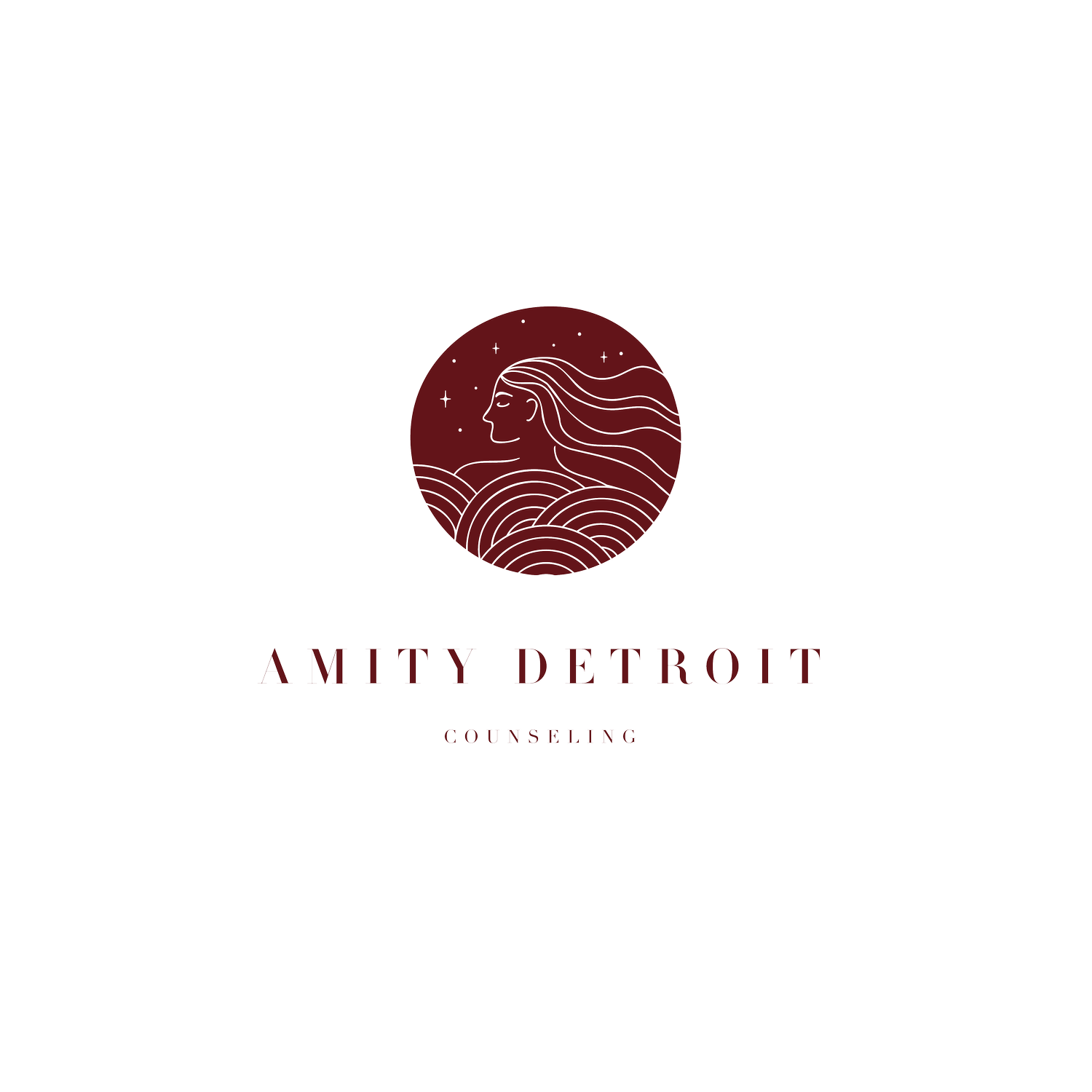Why Can’t I Get Over Them?
I recently posted this graphic on Instagram and it wasn’t my most liked post, but it was one of the posts that the most people saved for later. This tells me that people viewing my content are privately asking themselves about why they feel so stuck on someone. The high level of “behind the scenes” engagement tells me that many of you are grappling with the three topics highlighted in the post: grief, relational patterns, and identity.
You might be feeling shame for not being able to release someone from your past. It might feel like it’s obvious that they weren’t a good fit, didn’t treat you well, or hurt you in a way that feels unforgivable. Oppositely, it might feel like they were a fantastic fit and the universe is playing some type of cruel joke on you to keep you apart. Your shame might feel more like the shame of not being good enough to get them to stay. I understand and empathize with the shame response, but I don’t accept anything your shame has to say as the truth.
Let’s go a little bit more in depth into these three categories:
Grief
When someone dies, we expect grief. We might not handle it well as a collective, but we expect it. Imperfect people die every day, and yet we still anticipate grief. We can accept grief over the deaths of people who have hurt other people, people who have betrayed people, and even people who acted violently. When Rush Limbaugh died last month, news headlines were generally about his accomplishments. I saw quite a bit of celebration on social media, but the comments were still filled with people quick to defend his family’s right to mourn his death. He caused immense harm in his life, and yet it was expected that some may be grieving.
I hope that your romantic relationship did not cause you as much harm as Limbaugh caused so many. But even if it did, it is okay to still need to grieve. It is to be expected that you grieve both the beautiful parts of the relationship and the fantasies, hopes, and desires for what you had wanted the relationship to be. It’s okay if this takes years. It’s okay if it comes and goes in waves — that’s what we know grief does. The more we allow space for grief to breathe, the more easeful the process of releasing it will be. To say it more plainly: it doesn’t work to suppress grief or pretend that it isn’t there, even when we don’t want it to be.
Relational Patterns
We’re humans, we attach, and our attachments are wired to be a core part of how we feel safe in the world. We are not solitaire creatures. I can’t say this enough times. In a white supremacist, individualist culture, we are taught that independence is the most important part of surviving. This ties into capitalism and what type of work we value (certainly not relational or emotional labor) as well as how we view success, maturity, and moral superiority.
If you’ve felt shame for needing people, chances are the shame connects to one or many of the above themes. These themes might have been repeated in your family, your school, or your friend group. You might be exposed to memes repeating these narratives every time you log onto social media. You might fear that you’re codependent or “not healed” because you still feel like you need people.
These cultural narratives and your internal experience of shame can make it so intimidating to look more deeply at your relational patterns. I don’t promise my clients fast results, because the process of building our relationship itself takes time. Sometimes we don’t know what our relational patterns are until we develop an authentic relationship with a practitioner trained to check in with us, see what others don’t see, and gently but honestly point them out to us. If you’re feeling stuck on someone from your past, it might be connected to your unconscious mind searching for meaning or mastery over a familiar relational pattern.
Identity
Again, we are wired to connect. We do not define ourselves in an isolated vacuum. I don’t want to take away from our spiritual, authentic individuality, but I do want to highlight that many parts of our identities are in relationship to others. I’m a Mexican American Woman who is a daughter, partner, cat mom, etc. I see myself as someone who is kind, resourceful, and honest. How can I talk about these parts of who I am without acknowledging others I am in relationship with? How can I say who I am without telling you who I am in community with?
When a significant relationship ends, it can change our identity in tangible ways like, “now I am a single person” or “I am a person who lives alone,” but it can also call more global aspects of our identity into question. Fear can have you asking yourself if you’re the type of person who can be loved, or if you’ll be wearing the identity of “single” forever. You might find yourself questioning what the end of the relationship says about your sexual identity, future as a parent, or gender identity.
All About You
Your journey of healing after the end of a relationship is a dynamic journey of reflection on who you are, how you love, and how you hurt. I wish you gentleness, patience, and compassion in your reflecting. I wish you support, honesty, and compassion from those around you. Please do not hesitate to reach out if you’d like me to be a part of your community.

